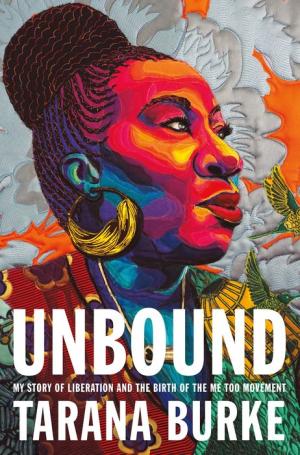Tarana Burke on the Past and Future of #MeToo
In her new memoir, Unbound, the activist examines how the movement was built. Here, she reflects on where #MeToo goes now.
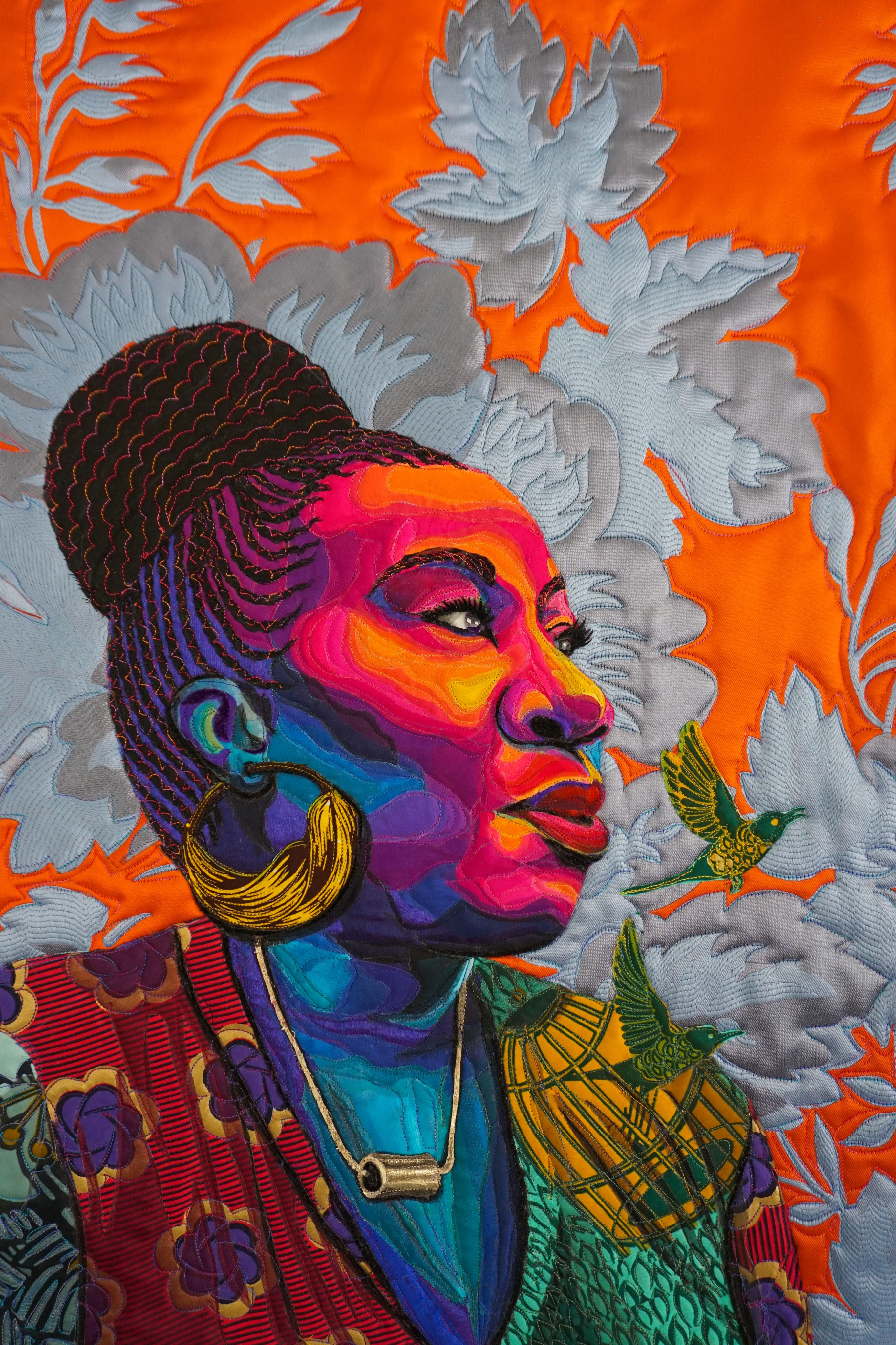
“I know this because I’m ugly,” Tarana Burke writes in the first few pages of Unbound: My Story of Liberation and the Birth of the Me Too Movement. The words epitomize the affecting, no-holds-barred nature of Burke’s first memoir—available on September 14—a place where the activist continuously bares her soul and dissects the ways in which the actions of others, and sometimes of herself, have exposed her to the ugly truths of the world. Throughout the pages of her book, Burke shares the circumstances of her upbringing that led to activating the #MeToo movement and how confronting those hard-learned truths allowed her to become the changemaker she is today.
Burke spoke with Marie Claire about the challenges and catharsis of unpacking past trauma, the exhaustion of empathy, and where the #MeToo movement stands (and how it might move forward) after a tumultuous few weeks for its related organization TIME’S UP—which included being embroiled in former New York Governor Andrew Cuomo’s sexual harassment investigation and the subsequent resignations of TIME'S UP CEO Tina Tchen as well as its entire board.
Marie Claire: What made you decide you were ready to write a memoir?
Tarana Burke: It was always my intention to write a series of memoirs, like Maya Angelou did. So I thought I was going to, on the heels of #MeToo going viral, write this story of the last four years—more so, I thought I was gonna write a story for survivors...what survival looks like and telling stories of survival. But I think my agent was first [to say], "You should tell your story first." [So] I think the twist on it was [my memoir covers] the origin story of #MeToo and what happened since #MeToo.
MC: You write about discovering Maya Angelou's I Know Why the Caged Bird Sings as a child and the impact it had, particularly in helping you feel seen. Was that your ultimate goal in writing Unbound?
TB: My greatest hope for this book is that little Black girls, and survivors of all stripes, will see some part of themselves in my story or feel a connection. I think there has to be more literature in the world that helps people navigate this world, navigate their own lives. Because life is hard and it's long. People keep saying “Life is short.” But I'm like, “It's the longest thing you'll ever do.” And we need some support in that.
MC: How did you approach the process of reliving your past traumas including your sexual assault as a child? Was there any catharsis there?
Get exclusive access to fashion and beauty trends, hot-off-the-press celebrity news, and more.
TB: I think we have a set of stories that, if you string them together, is our life. “I was born. I lived here. We moved there. This happened, that happened.” We learn that story and we just keep telling it and telling it and telling it. And when I started writing this, I started writing it from that perspective. Then I started realizing, I do know my own story, but what I don't know, and what I hadn't acknowledged yet, was how much of my story I had not unpacked. So this writing process revealed so much for me.
MC: Was that a solo process? Or were you relying on friends and family to help?
TB: I definitely was talking about it with my therapist. I got two therapists during this writing process. [Laughs] I also have journals. I've been a journaler since I was in middle school—luckily my mom kept them. So I did a lot of going back and reading what 14-year-old Tarana was anguished about.
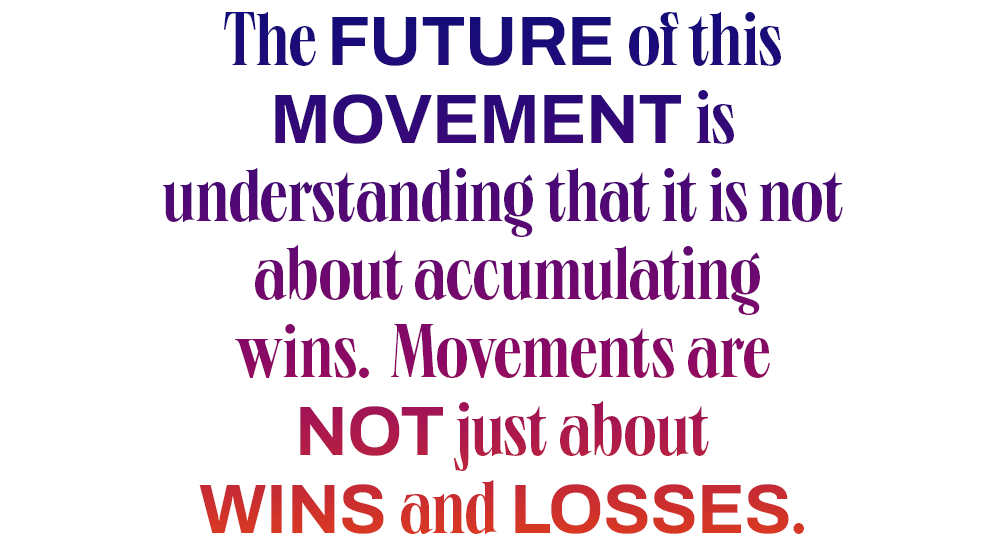
MC: What is your relationship to self-care now?
TB: For me, self-care looks like solitude. I need silence and solitude to decompress. Sometimes my husband will come look for me in the house and I'm sitting downstairs in a room in the dark. [Laughs] I do believe in tapping into what it is you need and not prescriptive self-care. I [also] need to be around green [spaces], so going to the mountains or to a lake has been really valuable.
Also this book—this is gonna sound crazy because everybody can't write a book—was a form of self-care for me, because I needed to get this story out of my body. When I was finally done, I thought, Oh my god, this has been a cleaning out of the attic. This is all of the stuff I'd packed away very gingerly...but I hadn’t vocalized them. So the self-care lesson for everybody who's not gonna go write a book is: rid yourself of the toxicity that we generate. There are these stories that seem benign, but they're really leaking toxic waste inside your body; we just let them sit there and fester and they add their own things. There were things that I have added to the story of when I was first molested at 7 that just didn't happen. I imagine that he told me, “This is what happens to ugly little girls.” I don't know if that's true, but I had made that true in my head. It was important to me to face it, to unpack it, to examine it really closely and then to get rid of it.
MC: There is a powerful line in your book: “It's a trap in which so many Black girls find themselves, either performing our pain or performing through it.” What would you, now, tell that young girl who was performing through and performing her pain?
TB: I'd tell her so much: “You are not the sum total of the things that happened to you.” It's gonna take more than one time of me saying, "Your beauty is not defined by what's on the outside, but what's on the inside.” And “You are beautiful because of how you treat people.” I wanna say that over and over and over and over again to her until she believes me.
It would have been helpful to hear it once. It would have been amazing to have that as a constant in my life. And I feel like that's the way I tried to set up my life so that I have access to young people, particularly young Black people, young Black girls and non-binary people, who need to hear it constantly in different ways, need to see it, and need to see it in practice.
MC: Going back to the shame you felt growing up—whether it was around your sexual assault or even going to the gynecologist—it's very much embedded in the culture of Black and Brown families to feel secretive about sex and sexuality. What would be your advice to parents or an older generation to end that cycle of shame?
TB: I've talked to parents, particularly in communities of color, about how we frame [how we speak about] protection around sexual violence. In my story, I wasn't afraid that my stepfather, even my mother wouldn't believe me [about my assault]. I was afraid of the fallout if they would believe me…[I thought then that] I would put my whole family in a tailspin [if I told them]. And that's because what I heard over and over and over again: “Somebody bother you, somebody touch you, I'll kill them.” And while that may feel like you're making the child feel safe, [you also make them scared of consequences]. Particularly if you live in urban communities where there's over-policing, you have early experience with law enforcement.
MC: A big part of the #MeToo movement is empathy. But there’s this collective exhaustion of empathy happening in 2021, on the heels of climate disaster, the ongoing pandemic, and other breaking news moments. How would you encourage people to keep caring?
TB: I think it's about perspective. All those things you just named existed when I was 18. It's just that we have more access to information now; it's on your timeline, it's on your newsfeed, it's in your chats, so it can become more overwhelming. But the flip side of it being everywhere is that there's more attention being paid to it. So for people who feel hopeless, I hope they're able to tap into the reason why it's everywhere. It's because of the progress.
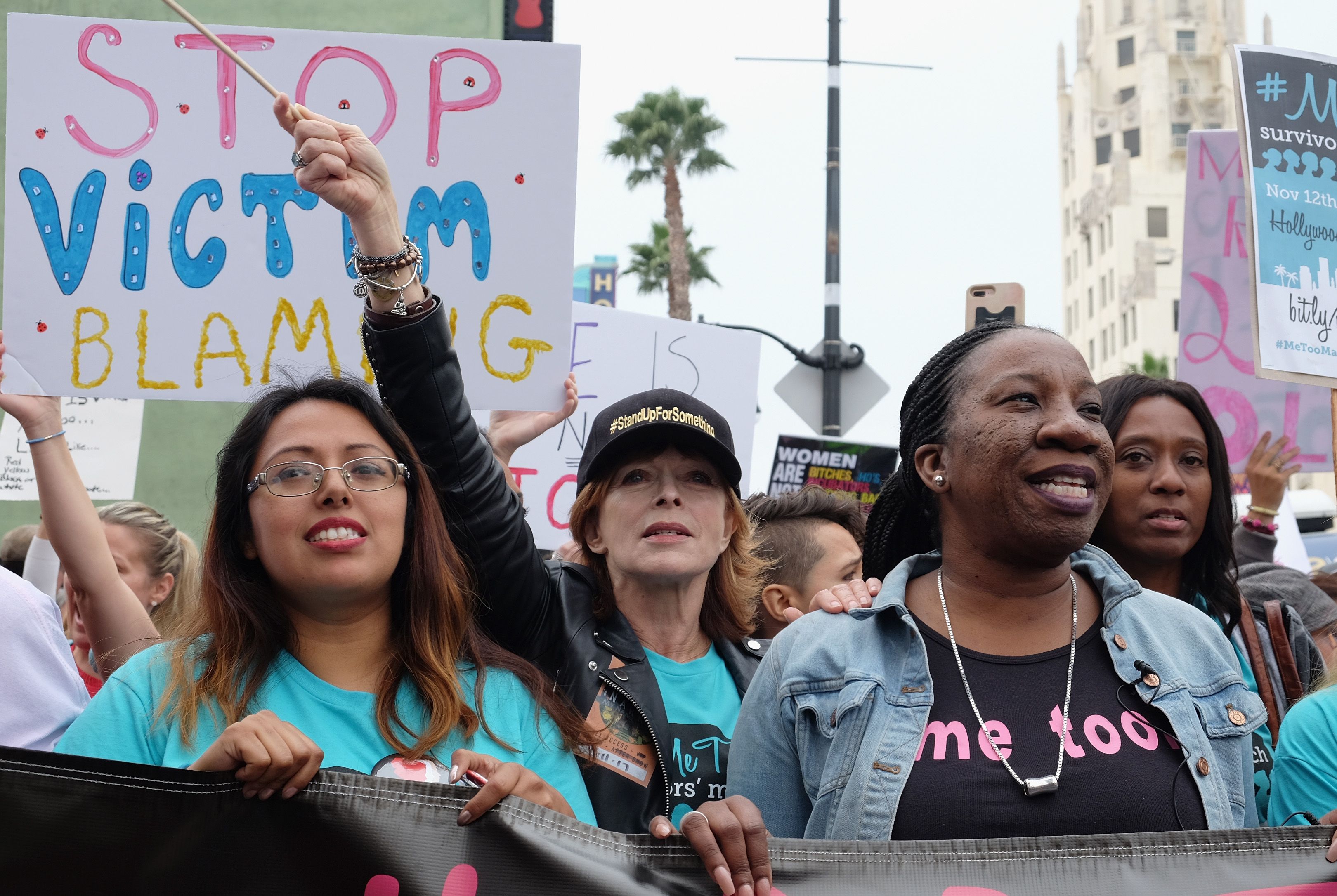
#MeToo founder Tarana Burke alongside other rally organizers at a Survivors March in Hollywood, California in 2017
We’ve had this significant progress in actually a short period of time because usually movements take a long time. And I think we've been deceived into believing they're supposed to yield massive results in very short periods of time. That's why history is important. That's why it's important to be grounded in an understanding of how we got here. Prior to #MeToo going viral, the biggest news around sexual violence and sexual harassment was 30 years ago with Anita Hill. Now we can point to several things in the last four years. So there's a lot to be hopeful for.
But also we're human beings; we're not meant to be hope and sunshine all the time. So allow yourself to feel what you feel because you're a human, but know that hope is waiting for you on the other side. Hope never really goes anywhere, we just close our eyes to it sometimes.
MC: What do you hope for the future of the #MeToo movement? And how do you think TIME'S UP can fit into that—what needs to be done to make sure that an organization like that can be a successful part of the next phase of #MeToo?
TB: I think that people are doing a lot of conflating. TIME'S UP is an organization that is a part of a larger movement. There's been good work that's happened [with TIME'S UP] and big mistakes that have happened. And that happens in all kinds of organizations. TIME'S UP is not #MeToo. The future of this movement is bigger than any one organization; it's bigger than any one country.
[TIME'S UP] is a young organization tackling an old problem. And what has happened in the last four years [with #MeToo] is nothing short of amazing. We've been able to keep the survivors at the forefront. But part of the future of this movement is understanding that it is not about accumulating wins. Movements are not just about wins and losses…. It's not the result of the investigation; it's the investigation itself. We couldn't have gotten things like that before. So we have to redefine what even a win looks like. The win is in the work. The win is in the attention being paid, the language changing, the narrative shifting, and the focus not being on people who cause harm, but people who experienced harm. So it's not the downfall of some powerful man, and it's not the downfall of a powerful organization. That cannot be the story of this movement. It's a disservice to the survivors who did the work. This movement exists because we survive, and it's a disservice to our survival to whittle it down to individual people who caused harm or organizations that get it wrong. That's not what we survived for. It's almost disrespectful to us to keep coming back to where the gossip is, where the mistakes are being made. I won't be a part of that.
MC: What do you hope to be writing about in a memoir 10 years from now?
TB: In 10 years, I hope I'll be able to unpack this moment. Maybe [by then] I'll be able to have some perspective and look back at how everything unfolded. But I also think that my life is bigger than the worst things that ever happened to me. I have love stories to tell. I have stories of being a mother and stories of being a friend, stories of being a daughter that I'd love to tell. Because I don't want to just keep telling my story of survival. I've also survived other things.
This interview has been edited and condensed for clarity.
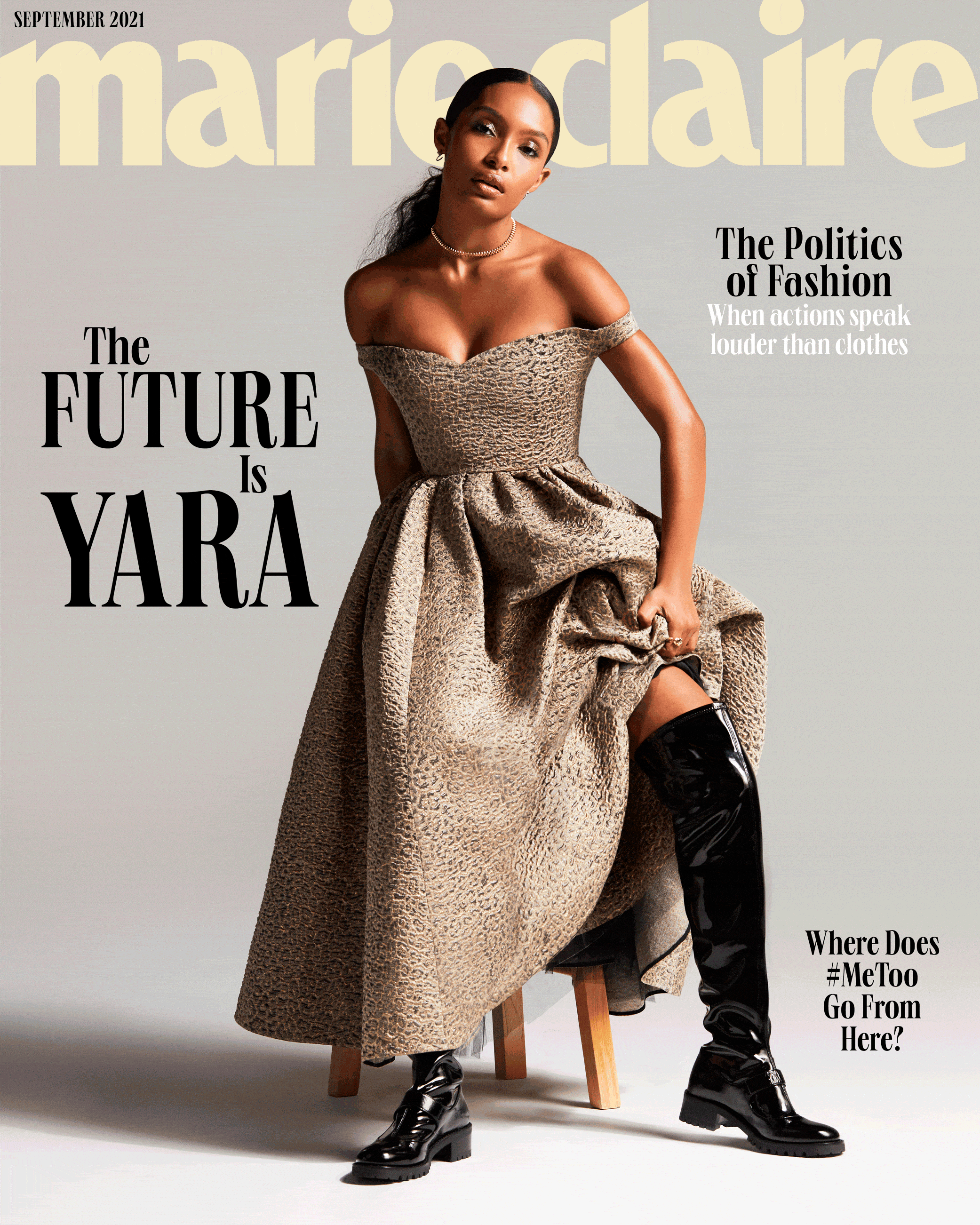
Neha Prakash is Marie Claire's Entertainment Director, where she edits, writes, and ideates culture and current event features with a focus on elevating diverse voices and stories in film and television. She steers and books the brand's print and digital covers as well as oversees the talent and production on MC's video franchises like "How Well Do You Know Your Co-Star?" and flagship events, including the Power Play summit. Since joining the team in early 2020, she's produced entertainment packages about buzzy television shows and films, helped oversee culture SEO content, commissioned op-eds from notable writers, and penned widely-shared celebrity profiles and interviews. She also assists with social coverage around major red carpet events, having conducted celebrity interviews at the Met Gala, Oscars, and Golden Globes. Prior to Marie Claire, she held editor roles at Brides, Glamour, Mashable, and Condé Nast, where she launched the Social News Desk. Her pop culture, breaking news, and fashion coverage has appeared on Vanity Fair, GQ, Allure, Teen Vogue, and Architectural Digest. She earned a masters degree from the Columbia School of Journalism in 2012 and a Bachelor of Arts degree from The Pennsylvania State University in 2010. She lives in Manhattan with her husband and dog, Ghost; she loves matcha lattes, Bollywood movies, and has many hot takes about TV reboots. Follow her on Instagram @nehapk.
